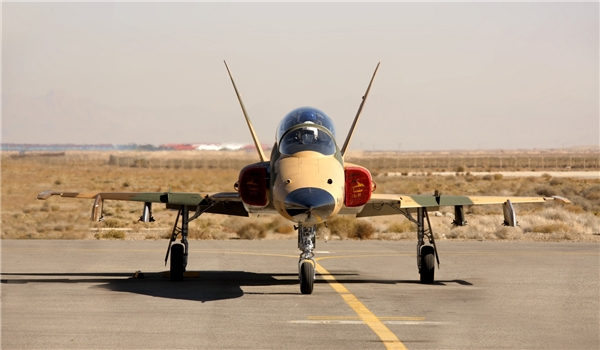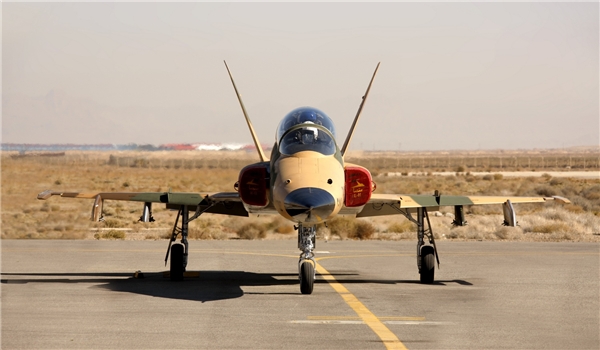Iran on Monday unveiled a new home-made combat fighter, named Saeqeh 2 (Thunderbolt 2), which can also be used for training purposes, FNA reported.
 Iran on Monday unveiled a new home-made combat fighter, named Saeqeh 2 (Thunderbolt 2), which can also be used for training purposes, FNA reported.
Iran on Monday unveiled a new home-made combat fighter, named Saeqeh 2 (Thunderbolt 2), which can also be used for training purposes, FNA reported.
"The double-cockpit supersonic fighter jet, which has been designed and built by the defense ministry's aerospace industries organization in cooperation with the Islamic Republic of Iran's Air Force, can be used for combat missions, close-range cover and backup in tactical missions, and also advanced pilot training programs," Iranian Deputy Defense Minister Brigadier General Amir Hatami said, addressing the unveiling ceremony.
He said the aircraft has been built on the basis of a new design which has maximized its combat power, adding that the plane has also been equipped with advanced electro-avionics and weapons systems to train pilots for flying with the existing or new heavy fighters.
In relevant remarks on Sunday, a senior Iranian Air Force commander also announced that the country is planning to build a new high-tech combat aircraft capable of tracing US and Israeli modern and stealth planes.
"We will manufacture an aircraft on Saeqeh platform which will be equipped with Fourth generation (and even higher) avionics …," Commander of Air Force's Owj Complex Colonel Houshang Monfaredzadeh said in an exclusive interview with FNA.
He reiterated that Iran was reaching a level of expertise that it would soon be able to manufacture a totally different aircraft in terms of electronic, radar and avionic systems as well as weaponry equipment.
Asked why Saeqeh platform was used for developing new planes, Colonel Monfaredzadeh said, "In all parts of the world it is the same and they choose the platform of one of their aircraft (for developing others) and we have also selected Saeqeh for this purpose …"
In September 2010, Iran displayed the first squadron of its Saeqeh fighters in an air show staged during the military parades at the beginning of the Week of Sacred Defense, marking Iranians' sacrifices during the 8 years of Iraqi imposed war on Iran in 1980s.
In September 2011, the Iranian Air Force's first squadron of home-made Saeqeh fighter jets started operations during the large offensive air drills codenamed "Fadaeeyan-e Harim-e Vellayat III" in Northwestern Iran.
Lieutenant Commander of the Iranian Air Force Brigadier General Alireza Barkhor announced in February that the new model of Iran's home-made Saeqeh jet fighter would be unveiled in the future.
"We will fly the new model of Iran's new Saeqeh fighter very soon," Brigadier General Barkhor said.
Also in the same month, Iranian Air Force Commander Brigadier General Hassan Shah Safi announced that his forces had focused all their power and energy on building fighter jets as they believed that future wars were fought and won in the sky.
“It is obvious that future wars will be in the sky with massive air and missile raids; therefore, the Air Force has adopted a new approach and focused all its internal power on building fighter jets in a self-driven, but organized way,” Shah Safi said, addressing foreign states’ military attachés in Iran.
He said that the Iranian Air Force’s efforts had resulted in the building of Saeqeh fighter jets.
Yet, the Air Force commander reiterated the defensive doctrine of the Islamic Republic, saying Tehran had the narrowest military budget among the regional countries.
In recent years, Iran has made great achievements in the defense sector and gained self-sufficiency in essential military hardware and defense systems.
The country has repeatedly made it clear that its military might is merely based on the state's defense doctrine of deterrence and that it poses no threat to other countries.
